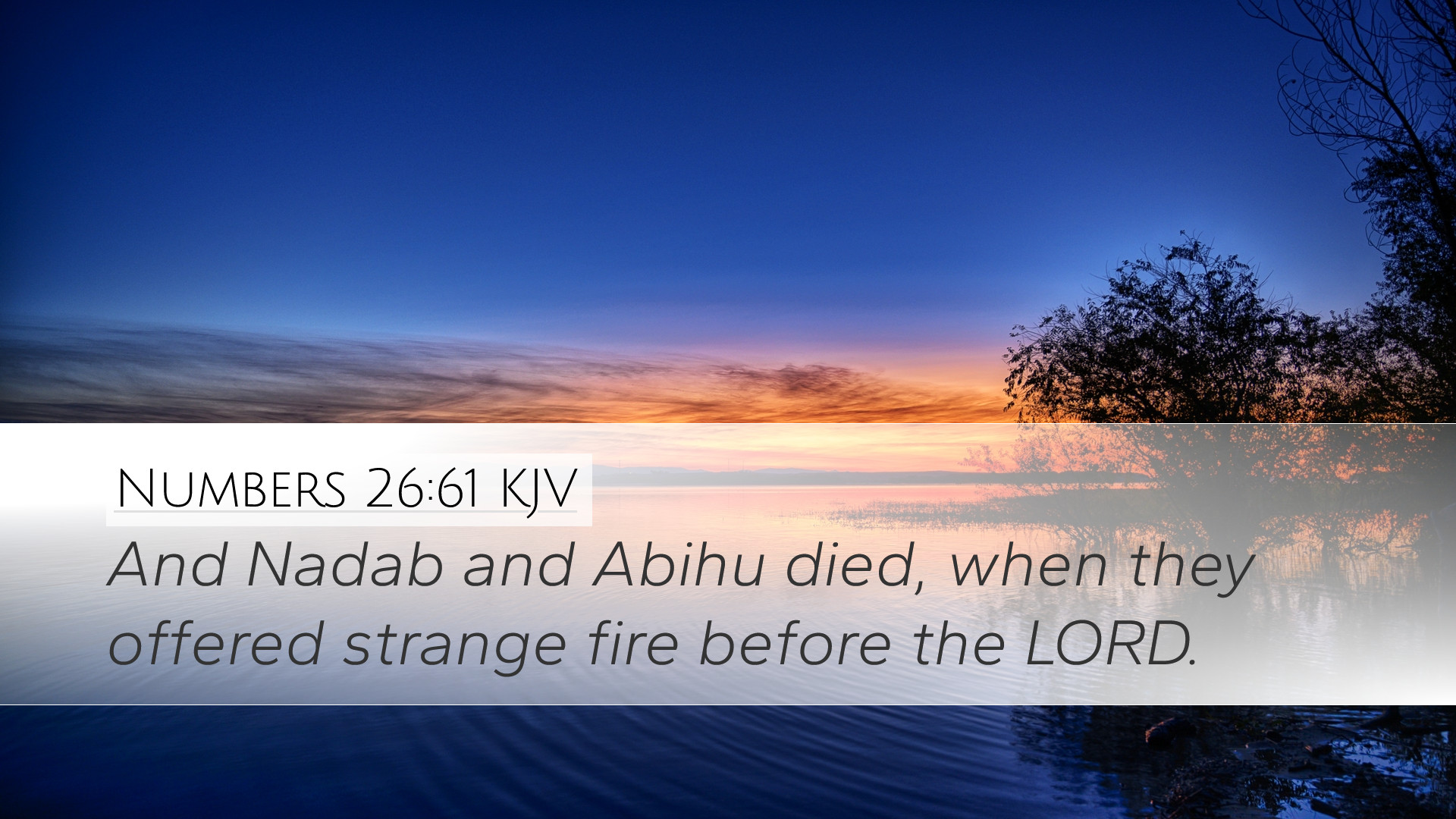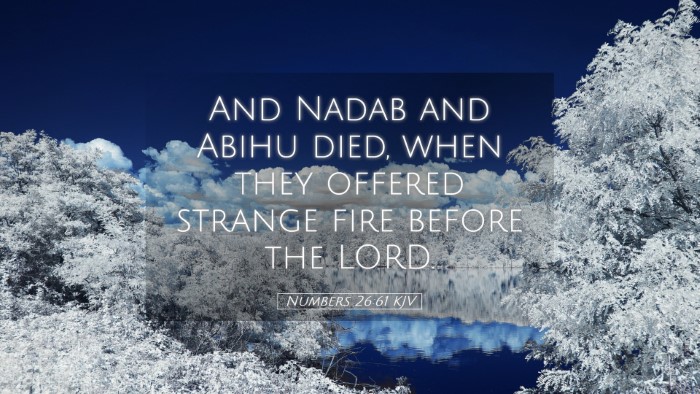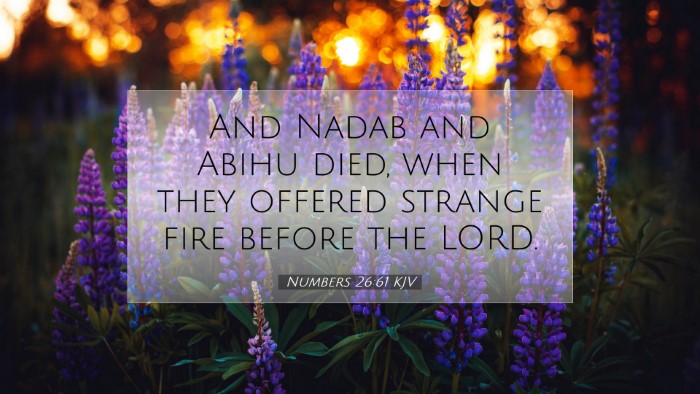Commentary on Numbers 26:61
Numbers 26:61 reads: “And Nadab and Abihu died, when they offered strange fire before the Lord.”
Introduction
This verse serves as a sobering reminder of the seriousness with which God regards worship and the sacrifices offered unto Him. Nadab and Abihu, the sons of Aaron, met a tragic end due to their disregard for divine instruction regarding worship. The insights drawn from public domain commentaries like those of Matthew Henry, Albert Barnes, and Adam Clarke help elucidate the theological implications and the narrative significance of this event.
Contextual Background
To fully appreciate the weight of Numbers 26:61, it is vital to examine the context surrounding this event. The book of Numbers details the Israelites’ journey through the wilderness and includes instructions and rituals concerning the priesthood. Nadab and Abihu, as priests, were expected to adhere strictly to the laws established by God concerning worship.
Matthew Henry’s Insights
Matthew Henry emphasizes that Nadab and Abihu's act of offering unauthorized fire was a deliberate violation of God’s established order (Henry, Commentary on the Whole Bible). Henry notes that their actions reveal a propensity to substitute human innovation for divine instruction. This reflects a broader theme of the necessity of obedience in worship, illustrating that God desires reverent and lawful honor.
Albert Barnes’ Commentary
Albert Barnes provides a detailed analysis of the term “strange fire.” According to him, this phrase refers to the fire that was not taken from the altar, which was the only acceptable source for offerings (Barnes, Notes on the Old Testament). Barnes highlights that their actions demonstrated a lack of respect for God’s holiness and a fundamental misunderstanding of their priestly duties. He underscores that the implications of this passage extend beyond the historical context, serving as a warning for contemporary worship practices.
Adam Clarke’s Interpretation
Adam Clarke points out that Nadab and Abihu’s actions can be interpreted within a broader reminder of divine holiness and judgment. Clarke notes that their judgment serves as an example to future generations that God does not tolerate irreverence in worship (Clarke, Clarke’s Commentary on the Bible). He emphasizes the significance of adhering to God’s principles in all forms of religious practice.
Theological Reflections
The death of Nadab and Abihu is illustrative of key theological truths:
- The Holiness of God: God's holiness is a central theme; His nature demands utmost reverence and adherence to His commands. Any deviation can result in severe consequences.
- Worship and Obedience: The act of worship is not merely a personal experience but should conform to God's standards. The example of Nadab and Abihu warns against the danger of approaching God without proper reverence.
- Judgment and Mercy: While God is merciful, He is also just. The judgment of Nadab and Abihu demonstrates the seriousness with which God treats the covenant relationship with His people.
Application for Today
This historical event holds profound implications for modern believers, leaders, and worshippers:
- Importance of Doctrine: Believers should strive for sound doctrine and practice in their worship, ensuring that it aligns with biblical truths.
- Role of Leaders: Church leaders must be diligent in modeling and teaching adherence to God’s ways, understanding the potential consequences of straying from His commands.
- Reverence in Worship: The church must cultivate a culture of reverence, recognizing that every aspect of worship should reflect the holiness of God.
Conclusion
Numbers 26:61 serves as both a cautionary tale and a call to sincere worship. The tragic fate of Nadab and Abihu underscores the need for proper reverence toward God’s holiness in all dimensions of faith and practice. As students, pastors, and theologians engage with this text, may they glean insights that foster a deeper understanding of true worship and commitment to obedience.


